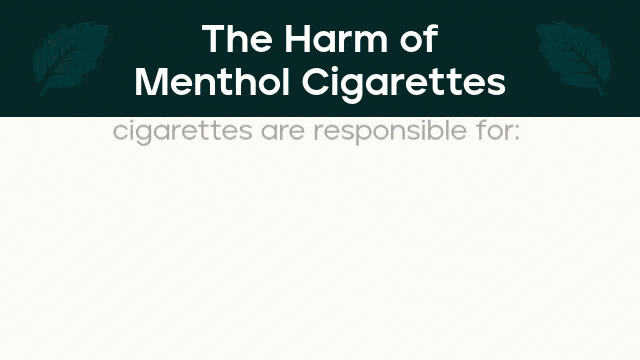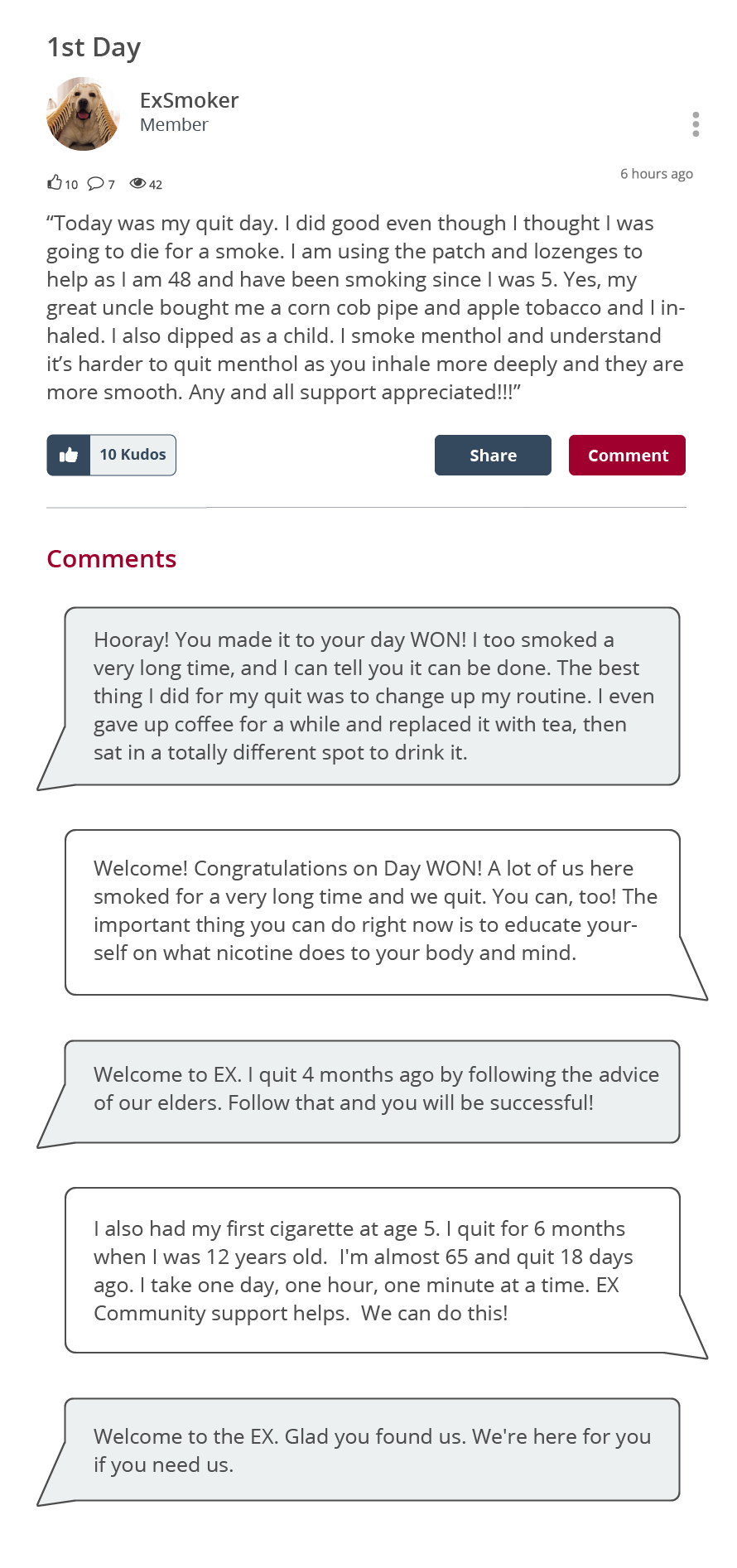With the recently proposed ruling from the Food and Drug Administration (FDA), you may be wondering why menthol cigarettes are getting so much attention. Here’s why it’s a big deal, especially for health plans that serve priority populations.
What is menthol?
Menthol is a chemical added to many tobacco products that adds a minty flavor. It also cools and numbs the throat, reducing the harshness of cigarette smoke.
Research has shown that adding menthol to cigarettes leads to deeper inhales, with greater exposure to nicotine and other chemicals in a cigarette. This can lead to a higher potential for addiction compared to non-menthol cigarettes. For adults, this means menthol can make quitting more difficult.
Tobacco companies add menthol to their products to make them less harsh and more appealing to people who have never used tobacco products, such as youth. It is no coincidence that menthol cigarettes are often used as an entry point for new smokers.
Why is it inaccurate to call it a menthol “ban” and why does this matter?
The proposed rule [or regulation] is commonly referred to as a menthol “ban” but that’s not correct.
Almost all cigarettes sold in the U.S. contain menthol because of its ability to reduce the harshness and irritation of cigarette smoke. The proposed regulation is aimed specifically at menthol cigarettes because they contain menthol at high enough quantities to be a “characterizing flavor.” This means it is something that consumers taste and want. Flavors like menthol are one of the primary reasons that youth start using tobacco products.
Language around this proposed legislation is important to get right. Calling it a “menthol ban” undermines the clear and compelling evidence about the public health benefit of removing menthol cigarettes from the shelves.
Why take menthol cigarettes off the shelves?
From 2019-2020, sales of menthol-flavored cigarettes made up 37% of all cigarette sales in the U.S.
Many smokers tend to have strong preferences for specific brands and flavors. So, removing menthol cigarettes from the market will likely spur many menthol smokers to make a quit attempt rather than switch to another product.
The impact of such regulation would be astronomical. Modeling data from recent research shows that between 1980 and 2018, menthol cigarettes were responsible for 10.1 million extra smokers and 378,000 early deaths. If menthol cigarettes are allowed to remain on the market, a similar toll can be expected to continue.
How are menthol cigarettes an issue for certain populations?
Menthol cigarettes are used at much higher rates by young people, racial and ethnic minority groups, LGBTQ+ people, and other subgroups. This is not by accident.
Tobacco companies aggressively marketed menthol-flavored tobacco products to certain populations. For example, tobacco companies marketed menthol cigarettes in Black communities, offering special discounts to hook new users. They also hijacked aspects of Black culture and sponsored events such as concerts and community events.
These prominently featured menthol ads, and as a result, menthol cigarettes became an accepted part of many Black communities. These marketing tactics resulted in 85% of African Americans who smoke currently smoking menthol cigarettes.
Research shows that menthol cigarettes disproportionally harm Black/African Americans and are responsible for exacerbating health disparities. A CDC report noted that Black/African Americans have a much higher risk for lung cancer than similar White Americans. Taking menthol cigarettes off the shelves could help Black/African Americans who smoke menthol cigarettes make a quit attempt.
How can EX Program help?
The EX Program provides evidence-based quitting help to people who smoke menthol cigarettes:
- We provide specific content around quitting menthol cigarettes.
- Our EX Coaches are trained to provide 1:1 real-time help to meet the participant’s unique needs; they also have vast experience in helping menthol users quit.
- The EX Community has many members who had to quit due to outside forces (for example, earlier flavor restrictions or high cigarette taxes). They can provide support to smokers who feel they are being forced to quit when menthol cigarettes are no longer sold. For example, see this snapshot of a dialogue from our community showing support to a menthol user trying to quit.
How to help menthol smokers now
Many local and state governments have already instituted restrictions on menthol, including Massachusetts, New Jersey, New York, Rhode Island, and California. (For a complete and up-to-date listing of states and localities, visit “U.S. State and Local Issues: Ending the Sale of Flavored Tobacco Products.”)
Given the groundswell of support for this proposed rule on menthol cigarettes, it would be wise to prepare by having the appropriate quitting resources ready. For more information on how the EX Program can help your population quit tobacco for good, visit our program page.






